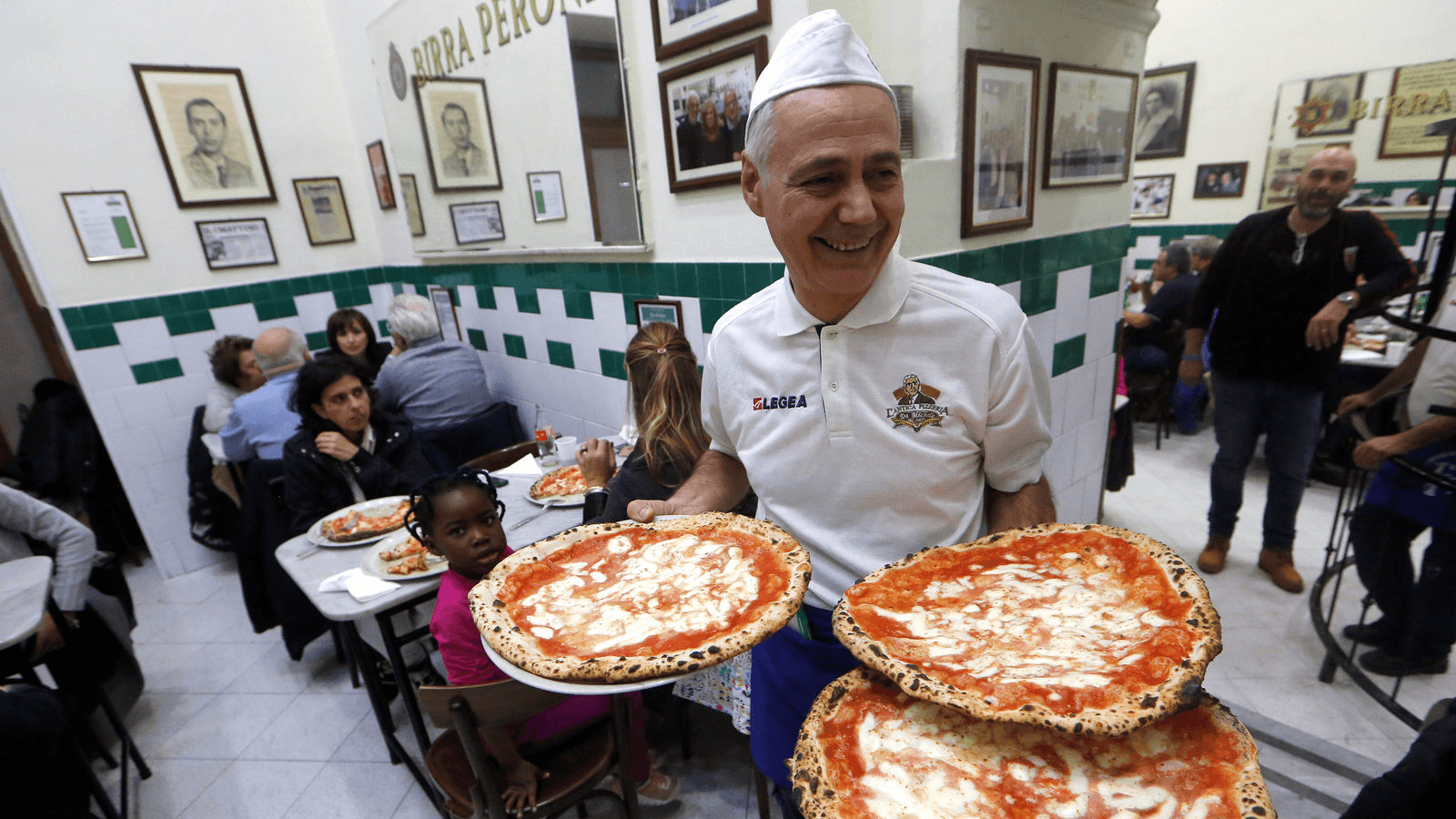A waiter serves pizza Margherita at L'Antica Pizzeria da Michele in Naples, Italy, Dec. 6, 2017.
The art of Neapolitan pizza making won world heritage status on Thursday, joining a horse-riding game from Iran and Dutch windmills on UNESCO's culture list.
UNESCO accepted the art of Neapolitan "pizzaiuoli," or pizza makers, on the world body's list of the Intangible Cultural Heritage of Humanity.
"Congratulations #Italy!" it said in a tweet after a meeting in Jeju, South Korea, where the decision was made.
Italy argued the practice of the "pizzaiuoli" — preparing and flipping the dough, topping it and baking it in a wood-fired oven — was part of the country's cultural and gastronomic tradition.
In Rome, pizzeria owner Romano Fiore celebrated the decision. "I am honored, like all Italians and Neapolitans are … pizza has centuries of history," he said.
Related: How Tony Gemignani shocked the pizza world
Archetypal Neapolitan pizza has a relatively thin crust with the exception of the rim, which, when baked, bloats like a tiny bicycle tire.
It is made in a wood-burning brick oven and has two classic versions: Marinara (tomato, garlic, oregano and oil) and, the most famous, Margherita (tomato, mozzarella, oil and basil), giving it the red, white and green colors of the Italian flag.
Tradition holds that the Margherita pizza was created in 1889 by a local chef in honor of Queen Margherita, who was visiting Naples, south of Rome on Italy's Tyrrhenian coast.
As pizza has become a favorite dish around the world, foreign innovations in toppings have often left Italians perplexed and aghast.
Matteo Martino, a customer at Fiore's pizzeria, said before the expected announcement, "I think, and I hope, that this could be the chance to make foreigners understand how pizza is made, without Nutella or pineapple.
UNESCO also accepted Chogan, an Iranian horse-riding game accompanied by music and storytelling, and the craft of millers operating windmills and watermills in the Netherlands.
Traditional boat making on the Indonesian island of South Sulawesi, and Nsima, a maize-based culinary tradition from the African country of Malawi, also joined the list.
Food culture already on the UNESCO list includes Turkish coffee culture and tradition, the gingerbread craft of northern Croatia and the traditional ancient Georgian method of Qvevri winemaking.
